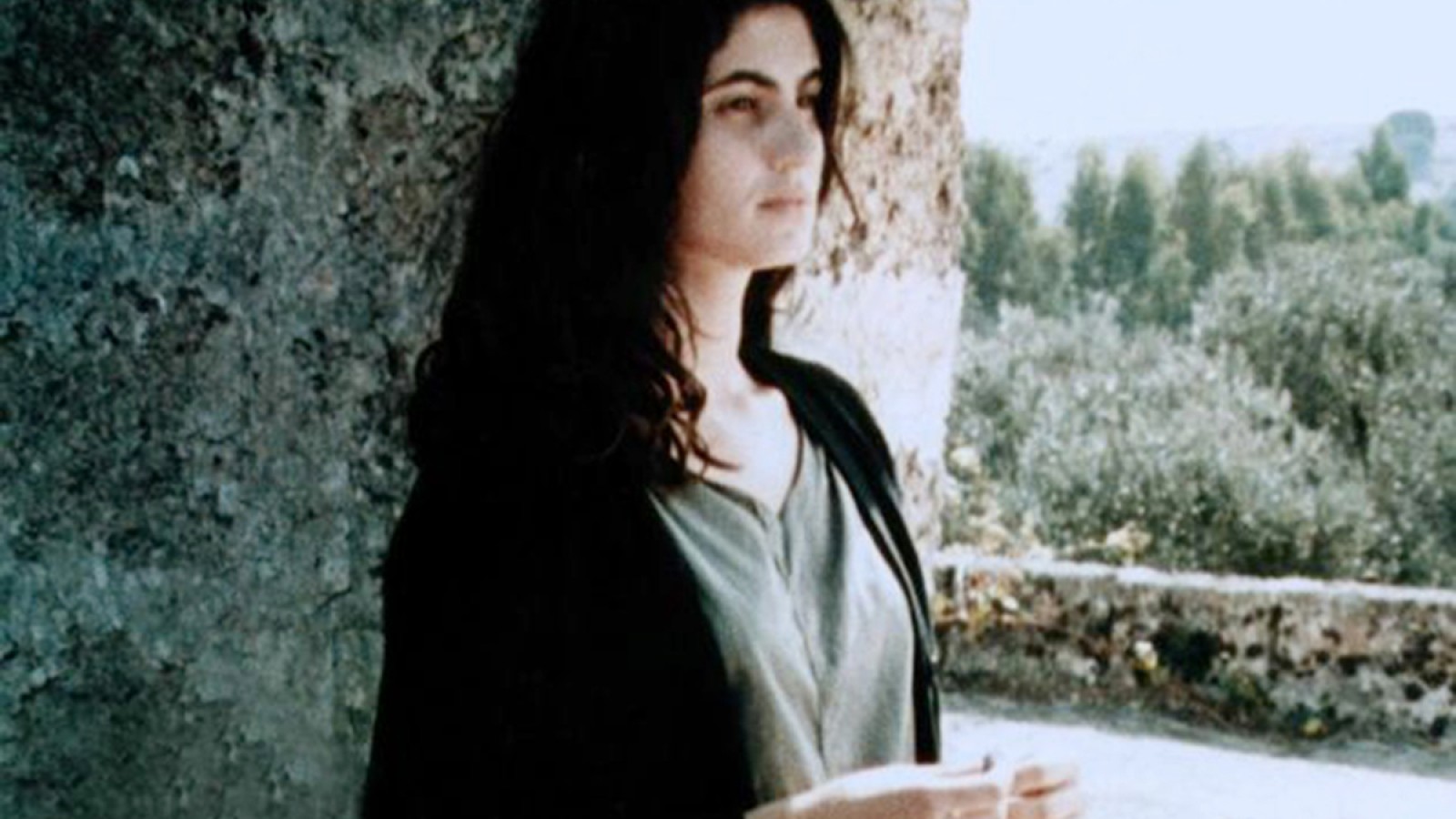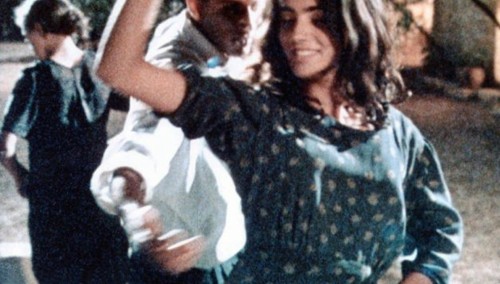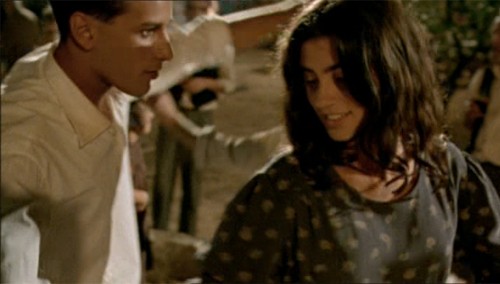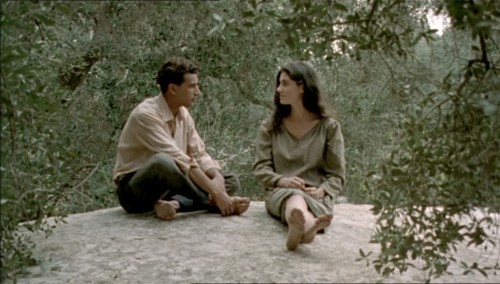Pizzicata
1943, Halbinsel Salento. Tony, ein italo-amerikanischer Pilot, muss mit seinem Fallschirm landen und gerät dabei auf den Hof eines Bauern mit drei Töchtern. In eine der drei, auf die auch der Sohn des mächtigsten Landbesitzers ein Auge geworfen hat, verliebt er sich. Tony integriert sich perfekt in das Landleben mit seinem eigenen Rhythmus, der sich in einer spezifischen Tanzform manifestiert. Die "pizzica", der traditionelle Tanz der salentinischen Halbinsel, ist Teil des Zusammenlebens, ein anthropologisch-religiöses Relikt einer Verbundenheit mit Heimat und Identität, und eine Möglichkeit, seelischen Schmerz aufzuarbeiten. (Markus Vorauer)
Good fortune literally falls out of the sky in Pizzicata, set in southern Italy in 1943. A handsome Italian-American soldier named Tony Marciano is forced to parachute into rural Italy, near the place where he was born. He falls into the midst of a family including a beautiful, lonely young woman named Cosima. (...) Pizzicata makes the connection between emigration and war as two reasons that so many men in the region are missing. "America to us is pain", says Carmine. "It takes away our sons, like the war." Thus there is something gratifying in the ease with which Tony slips back into the gentle ways of his homeland, finding respite so easily.
(Janet Maslin, New York Times)
Director's Biography
Edoardo Winspeare – Film Selection: La vita in commune
(The Ark of Disperata, 2017) — In grazia di Dio (Quiet Bliss, 2014) — Sotto il celio azzurro
(A School with a View, 2009, doc) — Galantuomini (Brave Men, 2008) — Il Cammino (The Journey, 2004, short) — Il miracolo
(The Miracle, 2003) — Sangue Vivo
(Live Blood, 2000) — Pizzicata (1996) — L’ultimo Gattopardo (1991, doc) — San Paolo e la Tarantola (1990, doc) — Una breve storia di una toilette (A Toilette’s Short Story, 1989, short)
Tribute · Eröffnungsfilme | Opening Films 2018
Edoardo Winspeare
Italien / Deutschland 1996
color
91 Minuten
Italienisch OmeU
Drehbuch Edoardo Winspeare
Kamera Paolo Carnera
Schnitt Carlotta Cristiani
Ton/Sounddesign Dieter Desinger, Jérome Harlay, Giuseppe Napoli
Musik Aldo Nichil, Officina Zoè
Mit Cosimo Cinieri, Ines D’Ambrosio, Anna Dimitri, Chiara Torelli
Produzent*innen Dieter Horres, Edoardo Winspeare
Produktion
Classic, Horres Film, Süddeutscher Rundfunk
Weltpremiere / World Premiere
Edinburgh Film Festival 1996Weltpremiere / World Premiere
Edinburgh Film Festival 1996




